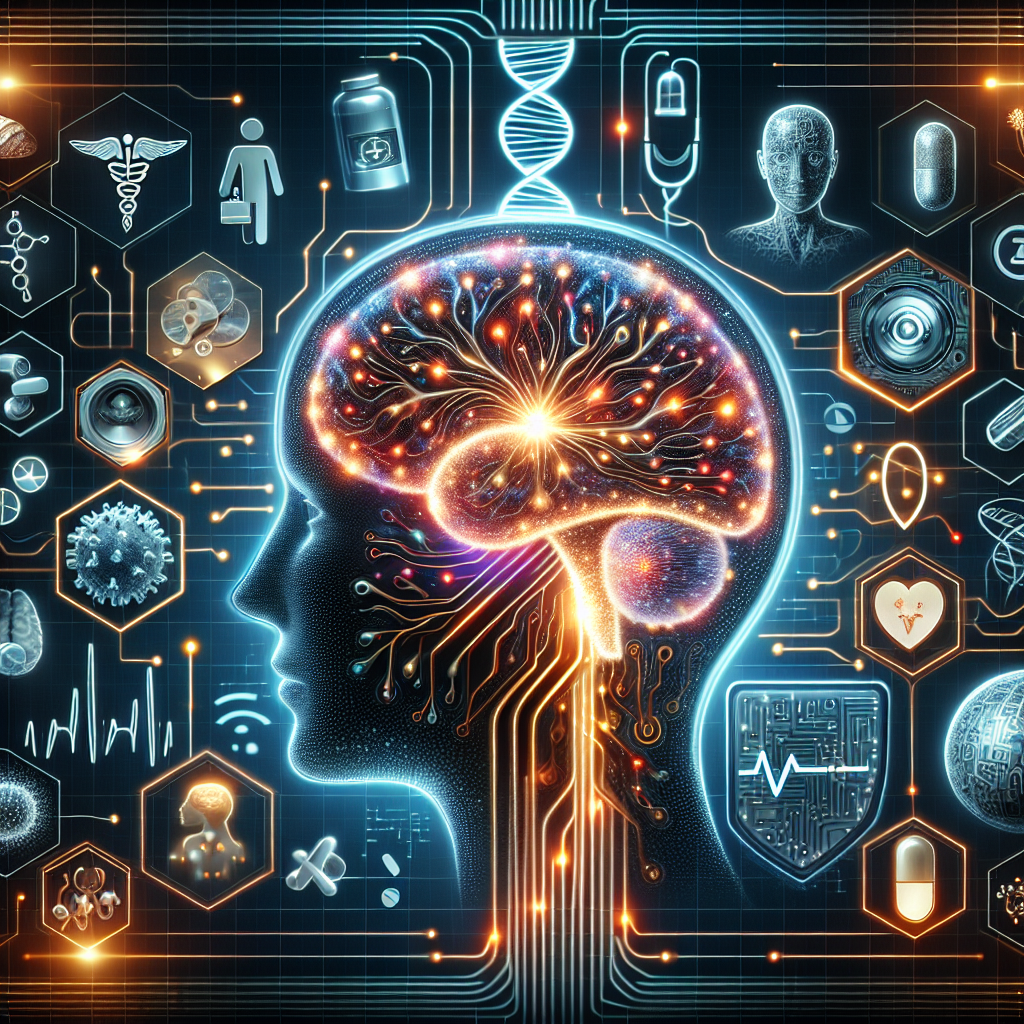The Potential of AI and Machine Learning in Personalized Medicine
In recent years, the field of personalized medicine has gained significant traction as researchers and healthcare professionals seek to tailor medical treatments to individual patients based on their unique genetic makeup, lifestyle factors, and other relevant data. This approach holds the promise of improving patient outcomes and reducing healthcare costs by delivering more targeted and effective treatments.
One of the key technologies driving the advancement of personalized medicine is artificial intelligence (AI) and machine learning. These technologies have the potential to revolutionize the way healthcare is delivered by enabling healthcare providers to analyze vast amounts of data and identify patterns that would be impossible for humans to detect. By leveraging AI and machine learning algorithms, healthcare professionals can make more accurate predictions about patient outcomes, identify personalized treatment plans, and even discover new therapeutic targets.
One of the primary applications of AI and machine learning in personalized medicine is the analysis of genomic data. The human genome consists of over three billion base pairs, and interpreting this vast amount of data to identify genetic variations that may impact an individual’s health is a complex and time-consuming process. AI and machine learning algorithms can analyze genomic data at scale, identifying patterns and correlations that can help healthcare providers better understand the genetic basis of diseases and develop targeted treatments.
For example, AI algorithms can analyze genomic data to predict an individual’s risk of developing certain diseases, such as cancer or heart disease, based on their genetic profile. This information can be used to develop personalized prevention strategies or early intervention plans to reduce the risk of disease development. In addition, AI algorithms can help healthcare providers identify genetic mutations that may impact the effectiveness of certain medications, allowing for the selection of more appropriate treatments.
Another key application of AI and machine learning in personalized medicine is the analysis of clinical data. Electronic health records contain a wealth of information about patients’ medical history, symptoms, treatments, and outcomes. By applying AI algorithms to this data, healthcare providers can identify patterns and trends that can help them make more informed decisions about patient care.
For example, AI algorithms can analyze electronic health records to identify patients at high risk of developing complications from a certain treatment or disease. This information can be used to develop personalized treatment plans that take into account individual patient characteristics and reduce the risk of adverse events. In addition, AI algorithms can help healthcare providers identify patients who may benefit from a particular treatment based on their medical history and outcomes, improving the effectiveness of healthcare interventions.
AI and machine learning can also be used to analyze data from wearable devices and other sources of real-time health data. By monitoring patients’ vital signs, activity levels, and other health metrics, healthcare providers can gain valuable insights into their patients’ health and well-being. AI algorithms can analyze this data to detect early signs of disease, predict health outcomes, and recommend personalized interventions to improve patient health.
Overall, the potential of AI and machine learning in personalized medicine is vast. These technologies have the ability to transform healthcare by enabling healthcare providers to deliver more targeted and effective treatments to individual patients. By leveraging AI algorithms to analyze genomic, clinical, and real-time health data, healthcare providers can improve patient outcomes, reduce healthcare costs, and ultimately save lives.
FAQs
Q: How does AI and machine learning improve personalized medicine?
A: AI and machine learning algorithms can analyze vast amounts of data, such as genomic, clinical, and real-time health data, to identify patterns and correlations that can help healthcare providers develop personalized treatment plans, predict patient outcomes, and identify new therapeutic targets.
Q: What are some examples of AI applications in personalized medicine?
A: AI applications in personalized medicine include analyzing genomic data to predict disease risk, analyzing clinical data to develop personalized treatment plans, and analyzing real-time health data to monitor patient health and well-being.
Q: How can AI and machine learning help healthcare providers deliver more targeted treatments?
A: By analyzing data from multiple sources, including genomic, clinical, and real-time health data, AI algorithms can help healthcare providers identify personalized treatment plans that take into account individual patient characteristics and improve the effectiveness of healthcare interventions.
Q: What are the benefits of AI and machine learning in personalized medicine?
A: The benefits of AI and machine learning in personalized medicine include improved patient outcomes, reduced healthcare costs, and the ability to deliver more targeted and effective treatments to individual patients based on their unique characteristics.
Q: What are some challenges of implementing AI and machine learning in personalized medicine?
A: Some challenges of implementing AI and machine learning in personalized medicine include data privacy concerns, regulatory barriers, and the need for healthcare providers to have the necessary skills and resources to implement these technologies effectively.
In conclusion, the potential of AI and machine learning in personalized medicine is immense. These technologies have the ability to transform healthcare by enabling healthcare providers to deliver more targeted and effective treatments to individual patients. By leveraging AI algorithms to analyze genomic, clinical, and real-time health data, healthcare providers can improve patient outcomes, reduce healthcare costs, and ultimately save lives. As the field of personalized medicine continues to evolve, AI and machine learning will play an increasingly important role in shaping the future of healthcare.

